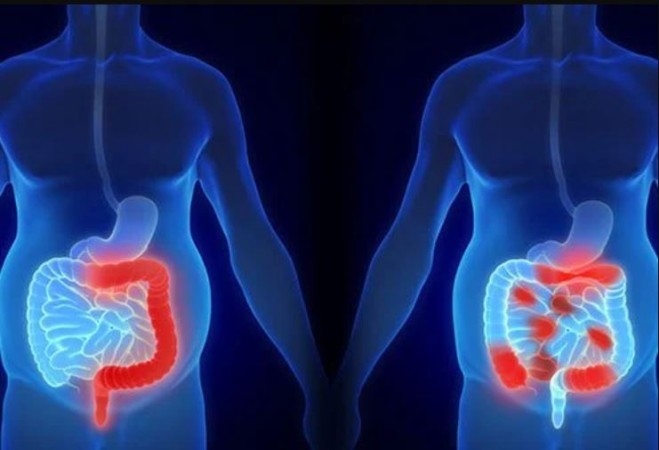
HYDERABAD: Urbanization's rapid expansion is fueling a surge in inflammatory bowel disease (IBD) among young adults and adolescents in India, as per the world's largest population-based study of 30,000 symptomatic patients, recently published in the Lancet journal.
IBD is a chronic condition characterized by various symptoms, including bloody diarrhea, weight loss, fever, fatigue, abdominal pain, anaemia, joint pain, and skin problems, among others.
Dr. D Nageshwar Reddy, Chairman of AIG Hospitals in Hyderabad, stated, "It is estimated that more than 15 lakh people in India are suffering from IBD, but the true picture remains unclear as we lack a large-scale, population-based epidemiological study to determine the exact incidence rate."
Dr. Rupa Banerjee, Director of the IBD Center at AIG Hospitals and the principal author of the study, added, "With the advent of globalization, IBD has made its entry into the developing world, and today we face a situation similar to what the West experienced two decades ago. The most concerning aspect of IBD incidence in India is its effect on the active, working population aged between 20 and 40 years, who are increasingly being diagnosed."
Surprisingly, the study revealed that IBD is equally prevalent in both rural and urban areas. In 2020, the team of doctors initiated a three-year rural outreach program (2.0), covering 150 villages across Telangana. The initial survey in 2006 showed an IBD prevalence of just 0.1 per cent in rural areas, but now it has risen to an alarming 5.1 per cent," said Dr. Reddy.
Over the past couple of decades, the incidence of IBD in India has exponentially increased, but it was primarily considered an urban disease, similar to western countries.
"However, the study proves that IBD is no longer limited to urban areas; rather, it is gradually making its way into rural households as well," Dr. Reddy added. He explained that several factors contribute to this rise.
"With increased urbanization, even in rural regions, dietary habits have changed. Processed food items are now easily accessible in villages. The adoption of a western lifestyle has also led to the use of western-style toilet seats, replacing the traditional Indian-style seats, which were more favorable to our anatomy," explained Dr. Reddy.
Furthermore, "C-section deliveries, coupled with a lack of breastfeeding during the first six months after childbirth, deprives the child of essential gut microflora. The excessive use of antibiotics during the neonatal stage also kills gut bacteria. All these factors together are not only responsible for the increased incidence of IBD but also contribute to the rise of other lifestyle diseases like diabetes, fatty liver, and cardiovascular diseases," he added.
To combat the rising cases, Dr. Reddy has urged the government to increase awareness about lifestyle diseases in rural areas using regional languages and at primary health care levels. He also advocates for regulating ultra-processed food, promoting a healthy diet and exercise among the rural population, and implementing constant monitoring of the rural population's health.
These drinks are a panacea for diabetes patients
Understanding Hypocalcemia: Causes, Symptoms, and Treatment Options